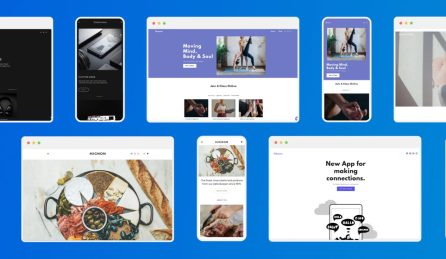Do you have a great idea for a new business? Eager to get started online? Then the next step is to register that domain name for your site!
But should you choose a name that describes what you do, or an original name you can turn into a brand? Which works best?
In this post, we’ll explain what descriptive and brandable domain names are to help you evaluate your options and choose the best fit for your new online business. Later, we’ll show how you can register your chosen domain with a trusted registrar like 123 Reg.
What are descriptive domain names?
A descriptive domain name clearly explains what your business does or what it offers. It uses words that immediately tell visitors the purpose of your site, product, or service. For example, wine.com instantly indicates that the site sells wine.
One of the main benefits of descriptive domain names is that they’re clear and self-explanatory — people know what your site is about before visiting. Longer names like WeSellYourFurniture.com can work just as well as short ones, and they’re often easier to register since most one-word .coms are already taken.
Domain availability and extensions
Many short, popular domain names are already registered. Of course, a good option is to go with a fun extension like .london or .shop, or opt in for newly released TLDs, like .ai to match your business sector. Just make sure the name you choose isn’t already registered and established on .com or .co.uk.
SEO potential
A descriptive name can help a little with search engine optimisation because your main keyword or phrase is in the web address.
But keywords are only a small factor in search rankings. Having one won’t guarantee a top spot without other efforts like content and promotion.
Factor in future growth
The biggest drawback is that if your business grows and starts selling other products or services, a descriptive name can become confusing. Imagine if Amazon had launched as Books.com — it made sense at the time, but wouldn’t fit today. Consider whether your name will still make sense three, five, or ten years from now.
Branding challenges
It can also be harder to create a strong brand identity with a descriptive name. While people immediately know what you’re selling, they might not understand who you are or what makes your business different.
What are brandable domain names?
Brandable domain names are typically non-keyword names that don’t explicitly describe a product, service, or business. They’re designed to be unique, memorable, and flexible, giving you a blank canvas to develop a distinct brand identity.
The main advantage of a brandable name is that it can be instantly recognisable and easier to protect legally through trademarks. Because the name isn’t tied to a specific keyword, it also offers more flexibility for growth and diversification in the future.
Reverse branding: Turning a random domain into a recognised brand
Reverse branding is when you take a seemingly random or non-descriptive domain and turn it into a recognisable brand. Amazon and Yahoo! are classic examples — their names didn’t describe their products initially, but clever branding and marketing made them instantly identifiable.
The benefit of reverse branding is that it gives you complete freedom to craft your brand identity, tone, and story. You’re not limited by a keyword or descriptor, which is useful for long-term growth.
The downside is that it usually requires a bigger upfront investment in marketing and brand-building to make the name familiar and trusted. But with the right strategy, a random or abstract name can become a powerful, memorable brand name.
See also: Domain Names and Trademarks – A Guide for your Online Brand
What about a combination of the two?
You can also combine the two approaches, using a descriptive keyword alongside a brandable word. Tortugabackpacks.com is a good example — you can tell they sell backpacks, but the unique brand name makes it memorable.
You can also personalise your brand. If your name is Dan and you own a barber shop, “Dan’s Barber Shop” combines a brand identifier with a descriptor, making it clear and recognisable.
For more, see our guide: How to Buy a Domain Name – A Step-by-Step Guide
Wrap up
Choosing a domain is one of the first and most important steps in building your online presence. Descriptive names are clear and immediately understandable, while brandable names are unique and easier to turn into a strong identity. Combining the two can give you the best of both worlds: clarity, memorability, and brand potential.
The key takeaway: pick a name that fits your business now, but also has room to grow with you. Once you find a great name that’s available, register it and start building your online presence — it’s the foundation of your brand and the first step toward long-term success.
Ready to secure your perfect domain? Register your domain with 123 Reg today and make your business idea a reality.





